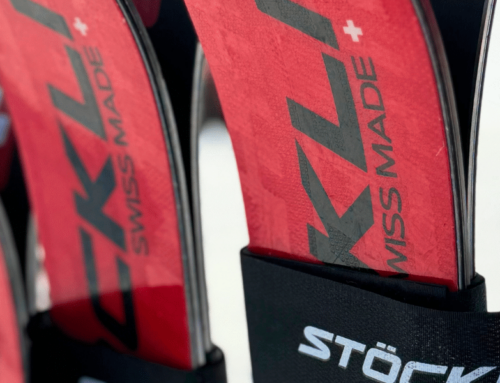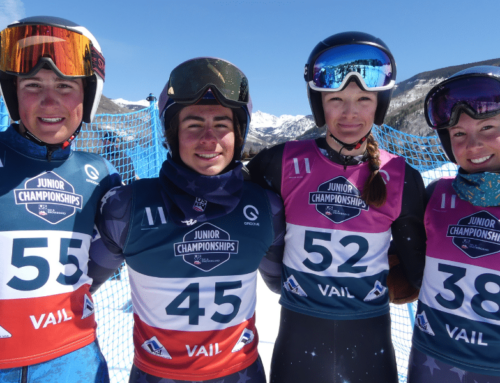Online registration not yet a panacea for Eastern Region’s woes
USSA’s Eastern Region, which has been plagued in recent years with unsustainable field sizes, attempted to find a solution this season to bounce back with new reforms and stricter guidelines.
The goals set by the region at the advent of the 2014-15 competition season were designed to limit late pulls from racers and to also bolster the field sizes that had been dwindling substantially over the last few years. Those lackluster attendee numbers were due in part to an over diluted system following the introduction of a development series established at the beginning of the 2008-09 season, which added more races to the FIS calendar and split the region’s athletes in two.
Also of concern for organizers was the high number of athletes pulling out of races due to last-minute opportunities, which left alternates who would have otherwise attended also out of the competition.
With field sizes shrinking and some race organizers struggling to get their number of competitors above 80, the Eastern Region took decisive action in reducing the number of regional events and also to creating an online payment and registration system in order to resurrect stronger attendance. The website, AdminSkiRacing.com, was designed with strict guidelines on when to pay and a no refund policy if an athlete’s name is withdrawn less that a week in advance of the race.
The switch from paying the day of a race to an online registration system that required athletes to commit to a series a week in advance hasn’t gone as smoothly as many hoped, and those who are required to use it regularly are now voicing concern.
With race entry fees rising nearly 130 percent in some cases during the last decade, athletes, their families, and coaches are understandably sensitive toward extraneous costs. The AdminSkiRacing.com site collects a surcharge of nearly six percent on each entry. With an average entry fee of $70, the surcharge factors out to roughly $4.16 per race.
Those most acutely aware of this surcharge are the college teams that pay for their athletes’ entries to races through a set budget at the beginning of each year. Current NCAA rules stipulate that a college team can only fund 16 race series not exceeding two days. In essence, that’s 32 funded races per season considering most alpine events consist of two or more days of competition.
Under those parameters and with even a conservative $65 race entry fee and a 15-athlete team, schools would be expected to pay an extra $1,854.80 per season to utilize the online registration system. With a high but not unheard of $80 race entry fee, that extra cost shoots to well over $2,000.
“We looked at many different sites and settled on AdminSkiRacing,” USSA Eastern Region Development Coach Martin Guyer explained. “Their processing fee is 5.95 percent which is less than the 9 percent fee charged by other sites, but more than the USSA online system at 3 percent that is picked up by USSA, leaving the member to pay nothing.”
However, Guyer identified shortcomings in the USSA system which made its implementation in the current season significantly less desirable for the region.
“USSA’s system is not ready to allow for team payment or foreign non-USSA members, both of which we have a lot of in the East,” Guyer continued, noting why free solutions are not always better. “We are working with USSA so this feature will be ready for us to use next season.”
With the new payment system, new rules have also taken root, leading to a single word being tossed about with ever-increasing controversy. That word is “purged.”
Per the USSA 2014-15 Eastern handbook: “Eastern Athletes will have 1 week to pay for the race series or they will be pulled with no recourse for getting back on the entry. (…) After the 7-day payment window, all Eastern athletes who have not paid, development selections excluded, will be purged from the entry list with no recourse to get back on the list.”
For racers, the deadline to pay closes one week in advance of the race. An email is sent to the athletes when payment opens, however it is not uncommon for athletes to miss the payment window and be purged from a race series. There is also additional stress on coaches have felt overwhelmed with the number of deadlines needing to be met for just a single athlete to race. This system adds a payment open/close date, which brings the total tally of deadlines for coaches up to six.
“At the end of the day, our office realized that the guidelines we set up should be in support of athletes, not act as roadblocks,” said Eastern Region Alpine Program Director Eric Harlow in relation to the “purge” rule. “We’ve been more relaxed about letting athletes back into the system because this is all about them. Typically, we will add them to the alternate list and very often they are able to regain access to the race that way.”
The no refund policy has also caused concern. Some feel that this forces athletes to race even if it is not in their best interest, lest they risk forfeiture of an entry fee. Athletes who register for a four-day series but realize after two or three that they are exhausted or should train rather than compete cannot be refunded.
“Every procedure we have will go under review at the end of the season,” explained Harlow. “Our hope is that through review and experience, the coaches will continue to learn and ultimately become more adept at using the new system, which really isn’t that different from the old one.”
Despite the disagreement stemming from this, results seem to speak for themselves. The culmination of less races and stricter registration procedures has resulted in field sizes ranging closer to 120-140 competitors throughout the region.
“This effort was made with best interests of the athletes and the clubs in our region,” Guyer concluded. “We will review and change if necessary, but the goals of increased access and bolstered field sizes have been met.”
Photo courtesy of USSA East





















